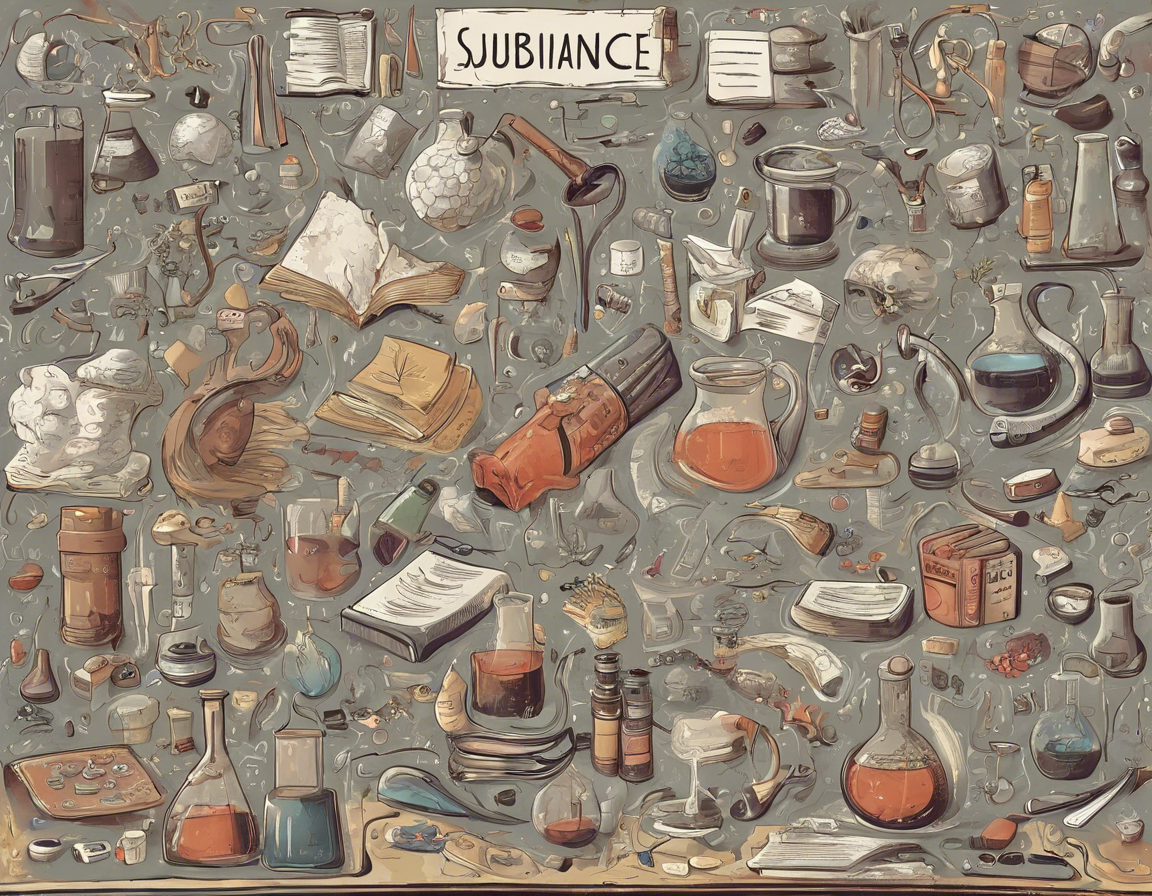Substance abuse is a complex issue that affects individuals, families, and communities worldwide. It is essential to have a thorough understanding of what substance abuse entails, its characteristics, and the impact it has on various aspects of life. In this article, we will delve into the definition of substance abuse and explore its key characteristics.
Definition of Substance Abuse
Substance abuse, also known as substance use disorder, refers to the harmful or hazardous use of psychoactive substances, including alcohol and illicit drugs. Individuals who engage in substance abuse often experience negative consequences, such as health problems, impaired judgment, and difficulties fulfilling responsibilities at work, school, or home.
Characteristics of Substance Abuse
1. Compulsive Use
One of the primary characteristics of substance abuse is the compulsive use of drugs or alcohol despite the negative consequences. Individuals may find it challenging to control their use of substances, leading to a cycle of addiction.
2. Cravings
Intense cravings for drugs or alcohol are common among individuals struggling with substance abuse. These cravings can be overwhelming and make it difficult for individuals to focus on anything else.
3. Tolerance
Over time, individuals may develop a tolerance to the effects of drugs or alcohol, requiring larger amounts to achieve the desired effects. Tolerance can lead to increased substance use and escalate the risk of overdose.
4. Withdrawal Symptoms
When individuals reduce or stop their substance use, they may experience withdrawal symptoms such as anxiety, irritability, sweating, and nausea. Withdrawal symptoms can be severe and often drive individuals to continue using substances to avoid discomfort.
5. Social and Interpersonal Problems
Substance abuse can strain relationships with family, friends, and colleagues. Individuals may engage in social isolation or exhibit erratic behavior, leading to conflicts and misunderstandings.
6. Neglect of Responsibilities
Individuals struggling with substance abuse may neglect their responsibilities at work, school, or home. This neglect can result in financial problems, academic difficulties, and work-related issues.
7. Health Problems
Substance abuse takes a toll on physical and mental health. Chronic substance use can lead to a range of health problems, including liver damage, heart disease, respiratory issues, and mental health disorders such as depression and anxiety.
8. Risky Behaviors
Under the influence of drugs or alcohol, individuals may engage in risky behaviors such as reckless driving, unprotected sex, or criminal activities. These behaviors can have serious consequences and put individuals and others at risk.
9. Legal Issues
Substance abuse can lead to legal problems such as DUI charges, drug possession offenses, or involvement in criminal activities to fund drug habits. Legal issues can have long-lasting repercussions on individuals’ lives.
FAQ Section
1. What are the common signs of substance abuse?
Common signs of substance abuse include changes in behavior, mood swings, social withdrawal, neglect of responsibilities, physical health issues, and financial problems.
2. How is substance abuse different from addiction?
Substance abuse refers to the harmful use of drugs or alcohol, while addiction involves a physical and psychological dependence on substances, leading to compulsive drug-seeking behavior despite negative consequences.
3. Can substance abuse be treated?
Yes, substance abuse can be treated through a combination of therapy, medication, support groups, and lifestyle changes. Treatment programs are tailored to individual needs and may include detoxification, counseling, and relapse prevention strategies.
4. What are the risk factors for developing substance abuse?
Risk factors for substance abuse include genetic predisposition, family history of substance abuse, trauma, mental health disorders, peer pressure, and environmental factors such as easy access to drugs or alcohol.
5. How can I help a loved one struggling with substance abuse?
Supporting a loved one with substance abuse involves offering non-judgmental support, encouraging them to seek help, and assisting them in accessing treatment programs. It is essential to educate yourself about substance abuse and practice patience and empathy.
6. What are the long-term effects of substance abuse?
Long-term effects of substance abuse can include chronic health problems, mental health disorders, legal issues, financial difficulties, strained relationships, and social isolation. Seeking treatment early can help mitigate these effects.
7. Is substance abuse a personal choice?
While individuals may choose to use substances initially, substance abuse often escalates beyond personal choice due to the development of addiction and dependence. Factors such as genetic predisposition and environmental influences play a significant role in substance abuse.
8. Can substance abuse impact job performance?
Yes, substance abuse can significantly impact job performance by causing absenteeism, reduced productivity, conflicts with colleagues, and impaired decision-making. Employers may offer support through employee assistance programs or referrals to treatment resources.
9. How can communities address substance abuse?
Communities can address substance abuse through prevention programs, education campaigns, access to treatment services, support for individuals in recovery, and enforcement of regulations on the sale and distribution of drugs and alcohol.
Conclusion
In conclusion, substance abuse is a complex issue that affects individuals from all walks of life. By understanding the definition and characteristics of substance abuse, we can better recognize the signs, provide support to those in need, and work towards creating a healthier and safer society. If you or someone you know is struggling with substance abuse, it is essential to seek help from healthcare professionals, addiction specialists, or support groups to start the journey towards recovery and healing.
